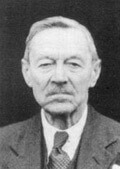Wednesday in Easter Week
Click here to join the effort!
Bible Commentaries
Hole's Old and New Testament Commentary Hole's Commentary
Old Testament
The creation, humanity's fall, the flood, and God's covenant with Abraham and his descendants. Exodus
Israel's escape from Egypt, receiving the Law, and covenant formation at Mount Sinai. Leviticus
Laws on sacrifices, purity, and holiness, guiding Israel's worship and community life. Numbers
Israel's wilderness journey, census data, and preparations for entering the Promised Land. Deuteronomy
Moses' final speeches reiterating the Law and renewing Israel's covenant before entering Canaan. Ezra
The return from exile, rebuilding the temple, and reestablishing the Law in Jerusalem. Nehemiah
Nehemiah's efforts to rebuild Jerusalem's walls and restore the community's faithfulness. Job
A righteous man's suffering, his dialogues on justice, and God's ultimate sovereignty. Isaiah
Prophecies of judgment and redemption, foretelling the Messiah's coming and Israel's restoration. Daniel
Stories of faithfulness in exile and visions of future kingdoms and God's ultimate victory. Haggai
Encouragement to rebuild the temple after the Babylonian exile, emphasizing God's presence. Zechariah
Visions and prophecies encouraging the returned exiles, foretelling the Messiah's coming. Malachi
A call to covenant faithfulness, addressing Israel's spiritual apathy, and predicting Elijah's return.
New Testament
Jesus' life, teachings, and fulfillment of Old Testament prophecies as the Messiah. Mark
A fast-paced account of Jesus' ministry, focusing on his actions and sacrificial death. Luke
Jesus' life, emphasizing compassion for the marginalized and the universal scope of salvation. John
Theological reflections on Jesus as the Word of God, focusing on his divine nature and mission. Acts
The early church's growth, the apostles' ministry, and the spread of the Gospel. Romans
A theological treatise on salvation, grace, faith, and righteousness through Jesus Christ for all. 1 Corinthians
Paul addresses divisions, immorality, and spiritual gifts in the Corinthian church. 2 Corinthians
Paul's defense of his apostleship, his sufferings, and the power of God's grace. Galatians
Paul's defense of the Gospel of grace against legalism, emphasizing faith in Christ alone. Ephesians
Paul's teachings on the church's unity, spiritual blessings in Christ, and Christian conduct. Philippians
A letter of joy and encouragement, urging humility and faithfulness amid persecution. Colossians
Paul's emphasis on Christ's supremacy and warnings against false teachings. 1 Thessalonians
Encouragement to a young church, with teachings on holiness and Christ's return. 2 Thessalonians
Clarifications about Christ's return and exhortations to stand firm in faith. 1 Timothy
Guidance for church leadership, sound teaching, moral conduct, and defending the truth of the gospel. 2 Timothy
Paul's final exhortations to Timothy, emphasizing perseverance and faithfulness. Titus
Instructions for establishing order in the church, promoting sound doctrine, and living with integrity. Philemon
A personal appeal for the forgiveness and restoration of a runaway slave, Onesimus. Hebrews
An insightful look at Christ's supremacy, priesthood, and the fulfillment of prophecies. James
Practical wisdom on living out one's faith through good works and righteous behavior. 1 Peter
Encouragement for suffering Christians to remain faithful and hopeful in their trials. 2 Peter
A reminder to grow in faith, resist false teachings, and remain steadfast awaiting His return. 1 John
Teachings on love, obedience, and assurance of salvation through fellowship with God. 2 John
A letter encouraging love, obedience to God's commands, caution against teachings that deny Christ's truth. 3 John
A personal letter commending hospitality and warning against arrogance in church leadership. Jude
A strong warning against false teachers and a passionate call to defend the faith and uphold the truth. Revelation
Apocalyptic visions of God's ultimate victory, Christ's return, and the new heaven and earth.
Author's Biography
Frank Binford Hole, often known simply as F.B. Hole (1874-1964), was a respected Bible teacher, evangelist, and author within the early 20th century Brethren movement. His works continue to be cherished for their clarity, depth, and faithful adherence to Scripture, making him a significant figure in Christian literature and theological study.
Hole was not just a theologian in the academic sense but a devoted practitioner of the faith he expounded. Born and raised in England, his life was a testament to the transformative power of the Gospel, which he diligently studied and eloquently taught. His approach to Scripture was both scholarly and practical, aiming not only to educate the mind but also to nurture the spirit and guide the Christian in daily life.
One of Hole's most notable contributions was his commentary on the New Testament, which remains widely read and appreciated for its insightful analysis and application. His writings have a characteristic warmth and accessibility, reflecting his pastoral heart and his desire to make the truths of the Bible understandable to all. He possessed a unique ability to distill complex theological concepts into language that was easy to grasp, yet without sacrificing depth or orthodoxy.
Throughout his life, Hole was deeply involved in the Brethren assemblies, contributing significantly to their teachings and practices. However, his influence extended far beyond this circle, touching the lives of countless Christians across denominational lines. His legacy is found in his written works, which continue to offer guidance, encouragement, and edification to believers seeking to deepen their understanding of God's Word.
F.B. Hole's dedication to the exposition of Scripture and his commitment to living out its teachings set a high standard for Christian authors and teachers. His works serve as a valuable resource for anyone wishing to explore the riches of the Bible with both the mind and the heart.
